CNN's Chris Cuomo tells Stephen Colbert why he thinks Trump's poll numbers never move
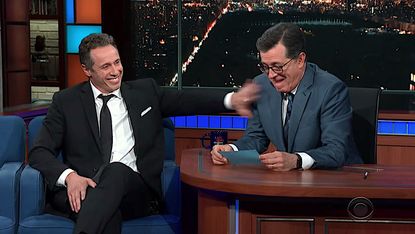

Chris Cuomo began his appearance on Thursday's Late Show by lifting Stephen Colbert and then explaining his CNN catchphrase: "Get after it." It's his life philosophy, Cuomo said, and a recognition that this is not a time to passively interview officials. Colbert asked him if he expects to persuade people to change their point of view, given America's remarkably fixed opinions on Special Counsel Robert Mueller, Russian election interference, and everything else to do with President Trump, not to mention Trump's own poll numbers.
Cuomo said he doesn't care what his viewers think, so long as they think, and then he laid out his theory on Trump's historically narrow polling range: "The intractability of the numbers where the president is involved I don't think is about the American people. I think it's about the expectations ... over time, the erosion of what people expect from public servants."
Cuomo explained that his father was New York's governor and his brother has that job now. "So I see that people in public service see the beauty in it," he said. "But we don't feel that anymore. I think that's why people forgive so much in this president. They don't expect better. ... That's why I think the numbers don't move. They can't be shocked, there is no sense of shame about what happens in public service. But we also don't reward virtue anymore. We have two parties that win by attacking the other, and that's a problem."
Subscribe to The Week
Escape your echo chamber. Get the facts behind the news, plus analysis from multiple perspectives.

Sign up for The Week's Free Newsletters
From our morning news briefing to a weekly Good News Newsletter, get the best of The Week delivered directly to your inbox.
From our morning news briefing to a weekly Good News Newsletter, get the best of The Week delivered directly to your inbox.
"Why didn't you go into the family business?" Colbert asked. "Well, the main reason is because I don't like it," Cuomo said. He added that he wished his brother, Gov. Andrew Cuomo (D), would quit politics, enjoy his life, "and not worry about people like me, and these jackals that chase around politicians." They ended with a pushup contest. Watch below. Peter Weber
Create an account with the same email registered to your subscription to unlock access.
Sign up for Today's Best Articles in your inbox
A free daily email with the biggest news stories of the day – and the best features from TheWeek.com
Peter has worked as a news and culture writer and editor at The Week since the site's launch in 2008. He covers politics, world affairs, religion and cultural currents. His journalism career began as a copy editor at a financial newswire and has included editorial positions at The New York Times Magazine, Facts on File, and Oregon State University.
-
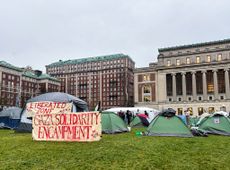 'Republicans want to silence Israel's opponents'
'Republicans want to silence Israel's opponents'Instant Opinion Opinion, comment and editorials of the day
By Harold Maass, The Week US Published
-
 Poland, Germany nab alleged anti-Ukraine spies
Poland, Germany nab alleged anti-Ukraine spiesSpeed Read A man was arrested over a supposed Russian plot to kill Ukrainian President Zelenskyy
By Peter Weber, The Week US Published
-
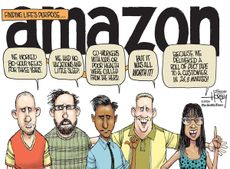 Today's political cartoons - April 19, 2024
Today's political cartoons - April 19, 2024Cartoons Friday's cartoons - priority delivery, USPS on fire, and more
By The Week US Published
-
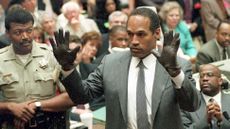 OJ Simpson, star athlete tried for murder, dead at 76
OJ Simpson, star athlete tried for murder, dead at 76Speed Read The former football hero and murder suspect lost his battle with cancer
By Rafi Schwartz, The Week US Published
-
 Momofuku's 'Chili Crunch' trademark uproar
Momofuku's 'Chili Crunch' trademark uproarSpeed Read The company's attempt to own the sole rights has prompted backlash
By Rafi Schwartz, The Week US Published
-
 Kevin Hart awarded Mark Twain Prize
Kevin Hart awarded Mark Twain PrizeSpeed Read He is the 25th recipient of the prestigious comedy prize
By Peter Weber, The Week US Published
-
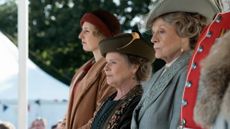 Is Downton Abbey set to return for a final film?
Is Downton Abbey set to return for a final film?Speed Read Imelda Staunton reveals that a third movie may be in the pipeline
By Adrienne Wyper, The Week UK Published
-
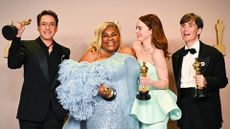 'Oppenheimer' sweeps Oscars with 7 wins
'Oppenheimer' sweeps Oscars with 7 winsspeed read The film won best picture, best director (Christopher Nolan) and best actor (Cillian Murphy)
By Peter Weber, The Week US Published
-
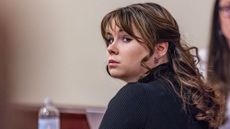 'Rust' armorer convicted of manslaughter
'Rust' armorer convicted of manslaughterspeed read The film's cinematographer Halyna Hutchins was shot and killed by actor Alec Baldwin during rehearsal
By Peter Weber, The Week US Published
-
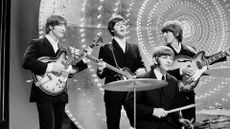 The Beatles are getting 4 intersecting biopics
The Beatles are getting 4 intersecting biopicsSpeed Read Director Sam Mendes is making four separate movies, each told from the perspective of one band member
By Peter Weber, The Week US Published
-
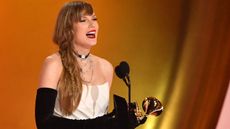 Taylor Swift to Miley Cyrus: female artists dominate 2024 Grammys
Taylor Swift to Miley Cyrus: female artists dominate 2024 GrammysSpeed Read SZA, Phoebe Bridgers and Lainey Wilson were also among the winners at LA gala
By Arion McNicoll, The Week UK Published